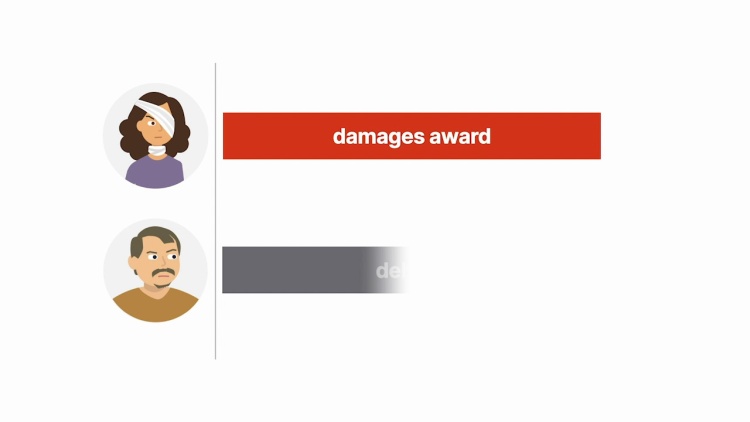Estate of Baird
Supreme Court of Washington
131 Wash.2d 514, 933 P.2d 1031 (1997)
- Written by Mary Pfotenhauer, JD
Facts
Phyllis Baird died intestate, and was survived by two children, James and Julie. James had two children, Jayme and Hunter, from a previous marriage. Prior to Phyllis’s death, James married Susan. James assaulted Susan, and was convicted and sentenced to prison. James then executed a document stating that he disclaimed any interest he might have in Phyllis’s estate. Susan brought a personal injury action against James and was awarded a $2.75 million judgment against him. James filed for bankruptcy, with Susan’s judgment making up nearly all of the creditors’ claims to the bankruptcy estate. Jayme and Hunter (plaintiffs) petitioned the probate court to find that James had disclaimed his interest in Phyllis’s estate, and Susan (defendant) objected. Under §11.86 of the Washington statutes, which conforms to the Uniform Probate Code’s provision on disclaimers, a beneficiary may disclaim any interest that would otherwise be taken by the beneficiary. Section 11.86 of the statutes defines a beneficiary as a person entitled to take an interest. Under § 11.86, types of interests that can be disclaimed include an interest in property, a contingent or vested interest in property, and an interest that is created by intestate succession. The probate court found James’ disclaimer to be invalid, and Jayme and Hunter appealed.
Rule of Law
Issue
Holding and Reasoning (Johnson, J.)
What to do next…
Here's why 905,000 law students have relied on our case briefs:
- Written by law professors and practitioners, not other law students. 47,100 briefs, keyed to 995 casebooks. Top-notch customer support.
- The right amount of information, includes the facts, issues, rule of law, holding and reasoning, and any concurrences and dissents.
- Access in your classes, works on your mobile and tablet. Massive library of related video lessons and high quality multiple-choice questions.
- Easy to use, uniform format for every case brief. Written in plain English, not in legalese. Our briefs summarize and simplify; they don’t just repeat the court’s language.





